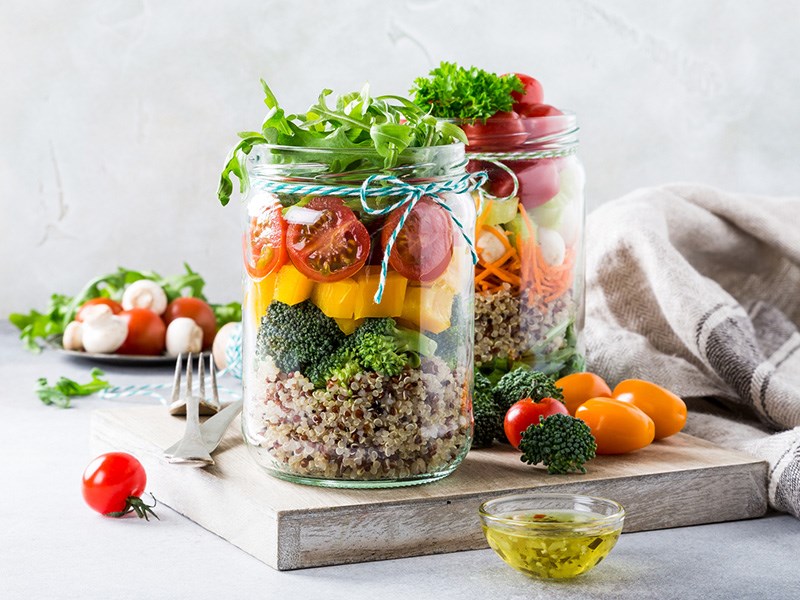The frenzy of back to school is upon us around Powell River, and quick lunches that don’t eat your wallet could be on your mind.
It can be tempting to buy snack-sized portions of food and drinks to ease your transition back to the halls of academia. We recommend thinking of lunchtime as a classroom, too, where zero-waste habits are the homework, and normalizing a closed loop is the lifelong benefit.
When it comes to meals for school, there are temptations along most grocery aisles that would lead us to a plastic feast. A smorgasbord of individually packaged yogurt portions, tiny juice boxes with single-use straws, and all manner of snackable treats await tired shoppers.
So, first things first: best not to shop when you’re worn down or hungry. If you wish to make nutritious, earth-friendly choices, don’t let your cravings guide you. Or, at the very least, make a shopping list and stick to it.
Buying in bulk and portioning out food and drinks is a great step to reducing waste. You can cater your portions to the appetite of the eater, and you can use washable containers to boot. Mason jars are an easy go-to, and you can find fancier lightweight metal containers, too.
One product that has hit the market recently replaces cling wrap. Beeswax infused sheets of cotton are available in all sizes and are perfect for wrapping up sandwiches, fruit, crackers and more. They have the added advantage of being breathable, antimicrobial and antibacterial, so food lasts longer and the material will not mould. Maintenance is easy: just rinse with cool, soapy warm water.
Cutlery can get overlooked for lunchtimes. Just like getting in the habit of bringing your reusable bags and coffee cups, you can make a cutlery kit part of your lunch box. The only trick is to remember to give it a rinse at the end of each day, or you may be decidedly grossed out by the end of the week. Add a stainless steel or bamboo straw for bonus points.
Homemade meals are almost always lower waste than store bought, and they reduce the use of packaging, too. Doing a little baking and freezing treats allows for zero-waste snack attacks.
Leftovers are a parent’s dream, as well, but children may not agree. Best to be sure the student in your life likes the food they will be eating twice in a row, to avoid the hidden waste of the classroom trash can. School cafeterias can offer meals prepared in bulk and without packaging, as a more costly but low waste alternative to home cooking.
Inevitably, we don’t finish all of every meal, or food can go off en route to our stomach, so keep a sealable container with your lunch. You can pack your compostable spoils to the nearest backyard composter (all schools in Powell River have one), or store for drop-off at the community compost bin (Town Centre Recycling Depot in Powell River).
The new school year is a great time to start a new zero-waste habit, whatever your age.
Let’s Talk Trash is qathet Regional District’s waste-reduction education program.



